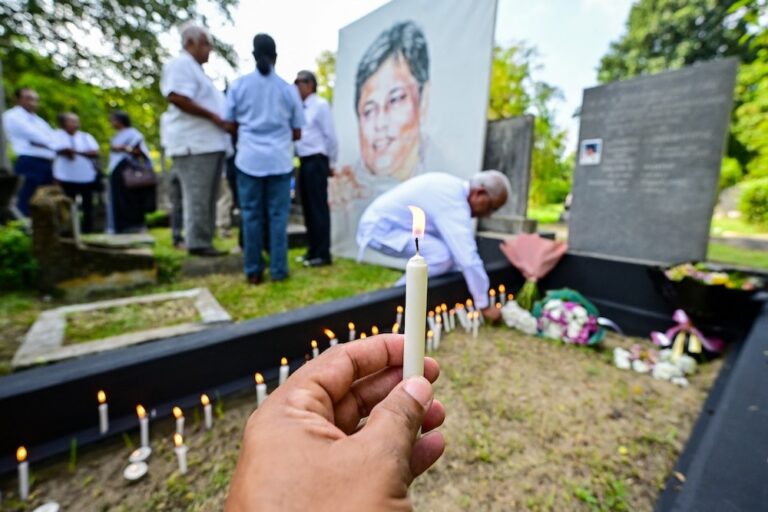(FMM/IFEX) – The following is a 20 June 2007 FMM press release: Clamping down on the Internet: The ban on “Tamilnet” in Sri Lanka 20 June 2007, Colombo, Sri Lanka – The FMM is deeply disturbed to learn that “Tamilnet” – http://www.tamilnet.com – a Tamil news website, is now being blocked by all major Internet […]
(FMM/IFEX) – The following is a 20 June 2007 FMM press release:
Clamping down on the Internet: The ban on “Tamilnet” in Sri Lanka
20 June 2007, Colombo, Sri Lanka – The FMM is deeply disturbed to learn that “Tamilnet” – http://www.tamilnet.com – a Tamil news website, is now being blocked by all major Internet service providers (ISPs) in Sri Lanka on orders of the government.
This is a significant turn in the erosion of media freedom in Sri Lanka and clearly demonstrates the extent to which media is censored and the free flow of information curtailed, without any accountability, transparency or judicial oversight.
“Tamilnet” is one of most widely visited and well-known news websites in Sri Lanka. Hosted abroad, the website is frequented by journalists from all ethnicities, civil society and the donor and diplomatic communities as well as the diaspora for situation updates, analyses and feature articles. It was popularised from relative obscurity by the late Tamil journalist Sivaram Dharmaratnam who, up until his murder in April 2005, was its editor. Though widely considered to be biased towards the Liberation Tigers of Tamil Eelam (LTTE), “Tamilnet” offers alternative perspectives, insight and information not often featured on other websites and in mainstream print and electronic media in Sri Lanka.
The ban on “Tamilnet” is the first instance of what the FMM believes may soon be a slippery slope of Internet censorship in Sri Lanka. It is also a regrettable yet revealing extension of this Government’s threats against, and coercion of, print and electronic media in Sri Lanka since assuming office in late 2005. The ban damningly occurs at a time when ****the [vs: an]**** International Mission on Press Freedom and the Freedom of Expression is in Sri Lanka to ascertain and alert stakeholders to the chilling decline in media freedom, violence against journalists and an unbridled culture of impunity.
The FMM stresses that the danger of censoring the Internet is that it gives a government and state agencies with no demonstrable track record of protecting and strengthening human rights and media freedom flimsy grounds to violate privacy, curtail the free flow of information and restrict freedom of expression – thus adding a heavy price in terms of diminished civil liberties to the high toll exacted by terrorism itself. The action by the Sri Lankan Government also contravenes established best practices in the free flow of information on the Internet and internationally recognised principles of freedom of expression on the web. In particular, the ban goes against the declaration by Reporters Without Borders and the OSCE on freedom of the media in 2005, that states, inter alia:
“2. In a democratic and open society it is up to the citizens to decide what they wish to access and view on the Internet. Filtering or rating of online content by governments is unacceptable . . . Any policy of filtering, be it at a national or local level, conflicts with the principle of free flow of information.
“4. . . . A decision on whether a website is legal or illegal can only be taken by a judge, not by a service provider. Such proceedings should guarantee transparency, accountability and the right to appeal.”
Blocking access to media and restricting information are characteristic of the reprehensible strategies adopted by terrorists. The FMM is gravely concerned that the Sri Lankan government, in adopting the same tactics and strategies, severely undermines media freedom and freedom of expression, and calls upon it and relevant state authorities to immediately rescind the orders to block the access to “Tamilnet”.


